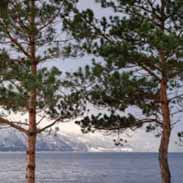ion flashcards
Unlock all answers in this set
Unlock answersquestion
| hydrogen |
answer
| H+ |
question
| lithium |
answer
| Li+ |
question
| sodium |
answer
| Na+ |
question
| Potassium |
answer
| K+ |
question
| Cesium |
answer
| Cs+ |
question
| Beryllium |
answer
| Be2+ |
question
| Magnesium |
answer
| Mg2+ |
question
| calcium |
answer
| Ca2+ |
question
| barium |
answer
| Ba2+ |
question
| Aluminum |
answer
| Al3+ |
question
| Silver |
answer
| Ag+ |
question
| Hydride |
answer
| H- |
question
| Fluoride |
answer
| F- |
question
| Chloride |
answer
| Cl- |
question
| Bromide |
answer
| Br- |
question
| Iodide |
answer
| I- |
question
| Oxide |
answer
| O2- |
question
| sulfide |
answer
| S2- |
question
| Nitride |
answer
| N3- |
question
| Phosphide |
answer
| P3- |
question
| Iron (III) |
answer
| Fe3+ |
question
| Iron (II) |
answer
| Fe2+ |
question
| Copper (II) |
answer
| Cu2+ |
question
| Copper (I) |
answer
| Cu+ |
question
| Cobalt (III) |
answer
| Co3+ |
question
| Cobalt (II) |
answer
| Co2+ |
question
| Tin (IV) |
answer
| Sn4+ |
question
| Tin (II) |
answer
| Sn2+ |
question
| Lead (IV) |
answer
| Pb4+ |
question
| Lead (II) |
answer
| Pb2+ |
question
| Mercury (II) |
answer
| Hg2+ |
question
| Mercury (I) |
answer
Hg22+ message from book: note that mercury (I) ions always occur bound together to form Hg22+ ions. |
question
| Silver |
answer
Ag+ note from book: Althought these are transition metals, they form only one type of ion, and a Roman numeral is not used. this is a repeat in the book. |
question
| Zinc |
answer
Zn2+ note from book: Althought these are transition metals, they form only one type of ion, and a Roman numeral is not used. |
question
| Cadmium |
answer
Cd2+ note from book: Althought these are transition metals, they form only one type of ion, and a Roman numeral is not used. |
question
| Mercury (I) |
answer
| Hg22+ |
question
| Ammonium |
answer
| NH4+ |
question
| Nitrite |
answer
| NO2- |
question
| Nitrate |
answer
| NO3- |
question
| Sulfite |
answer
| SO3- |
question
| Sulfate |
answer
| SO4- |
question
Hydrogen Sulfate (bisulfate is a widely used common name) |
answer
| HSO4- |
question
| Hydroxide |
answer
| OH- |
question
| Cyanide |
answer
| CN- |
question
| Phosphate |
answer
| PO43- |
question
| Hydrogen Phosphate |
answer
| HPO42- |
question
| Dihydrogen Phosphate |
answer
| H2PO4- |
question
| Thiocyanate |
answer
| NCS- |
question
| Carbonate |
answer
| CO32- |
question
Hydrogen Carbonate (bicaronate is a widely used common name) |
answer
| HCO3- |
question
| Hypochlorite |
answer
| ClO- |
question
| Chlorite |
answer
| ClO2- |
question
| Chlorate |
answer
| ClO3- |
question
| Chlorate |
answer
| ClO3- |
question
| Perchlorate |
answer
| ClO4- |
question
| Acetate |
answer
| C2H3O2- |
question
| Permanganate |
answer
| MnO4- |
question
| Dichromate |
answer
| Cr2O72- |
question
| Chromate |
answer
| CrO42- |
question
| Peroxide |
answer
| O22- |
question
| Oxalate |
answer
| C2O42- |



